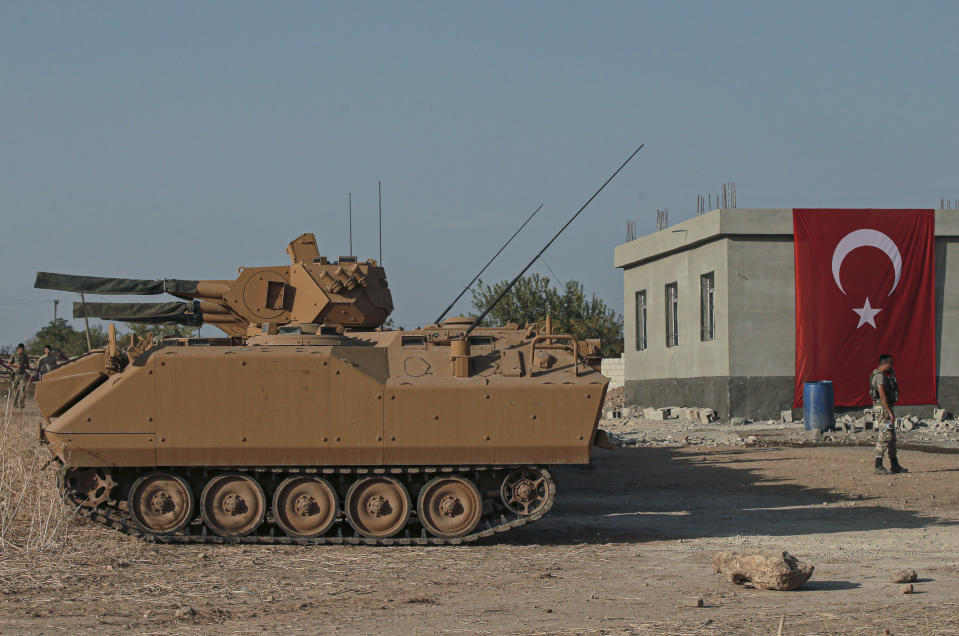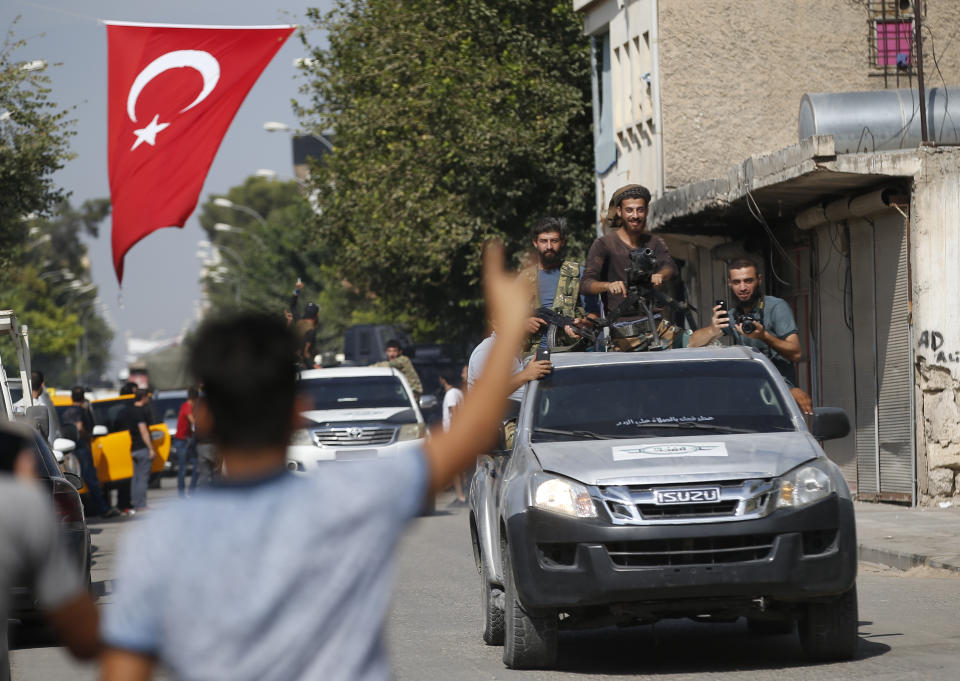Turkey says it is acting in self-defense in Syria
UNITED NATIONS (AP) — Turkey has justified its ongoing invasion of northeast Syria to the United Nations by saying it's exercising its right to self-defense under the U.N. Charter, according to a letter circulated Monday.
Ankara said the military offensive was undertaken to counter an "imminent terrorist threat" and to ensure the security of its borders from Syrian Kurdish militias, whom it calls "terrorists," and the Islamic State extremist group.
Since 2014, the Kurds had fought alongside American forces in defeating IS in Syria. But U.S. President Donald Trump ordered American troops in northern Syria to step aside last week — a move decried at home and abroad as a betrayal of an ally.
The U.S. withdrawal cleared the way for Turkey's cross-border attack on Kurdish-held areas in Syria, which is now in its sixth day and has led to quickly shifting alliances.
The military action by Ankara sets up a potential clash between Turkish and Syrian government troops, as the Kurds have now turned to Damascus for support. It also raises the specter of a resurgent IS, since the Kurds will focus their attention on the Turkish advance.
Turkey's position is that the main Kurdish group in Syria is linked to an outlawed Kurdish group in Turkey, the Kurdistan Workers' Party. Known as the PKK, that group has waged a 35-year old conflict against the Turkish state that has left tens of thousands of people dead.
Turkey's U.N. Ambassador Feridun Sinirlioglu said in the letter to the Security Council dated Oct. 9 that its counter-terrorism operation will be "proportionate, measured and responsible."
"The operation will target only terrorists and their hideouts, shelters, emplacements, weapons, vehicles and equipment," he said. "All precautions are taken to avoid collateral damage to the civilian population."
But U.N. Secretary-General Antonio Guterres said Monday that at least 160,000 civilians have been newly displaced and that military action has already reportedly resulted in many civilian casualties.
Sinirlioglu said Syria's eight-year conflict "has created a breeding ground for various terrorist organizations, posing a wide range of threats to the region and beyond."
Despite these claims, many foreign fighters who joined IS originally found their way to Syria through Turkey, and it was widely believed Turkish authorities turned a blind eye at the time.
Turkey said it invoked Article 51 of the U.N. Charter, which authorizes military action in self-defense. It also cited six Security Council resolutions since 2001 dealing with the fight against terrorism.
"Turkey's national security has been under the direct and imminent threat of terrorist organizations operating in the east of the Euphrates in Syria," Sinirlioglu said.
In addition, he said, an agreement signed by Turkey and Syria in Adana on Oct. 20, 1998 "constitutes a contractual basis for my country to fight all kinds of terrorism emanating from Syrian territory in its hideouts and in an effective timely manner."
Sinirlioglu underscored Turkey's strong commitment to Syria's territorial integrity and political unity.
He said the country "will carry out this operation in support of efforts to facilitate the safe return of displaced Syrians to their homes of origin or other places of their choice in Syria."
He stressed Turkey's "strong commitment" to a political solution to the Syrian conflict based on a roadmap to peace adopted by key nations in 2012 and endorsed by the Security Council in 2015.

